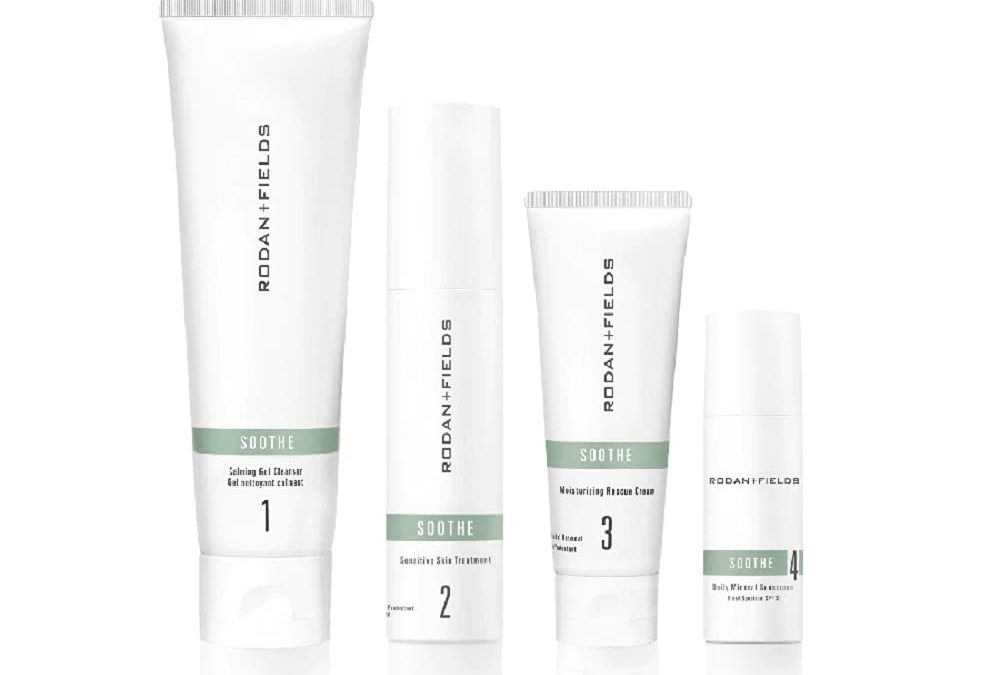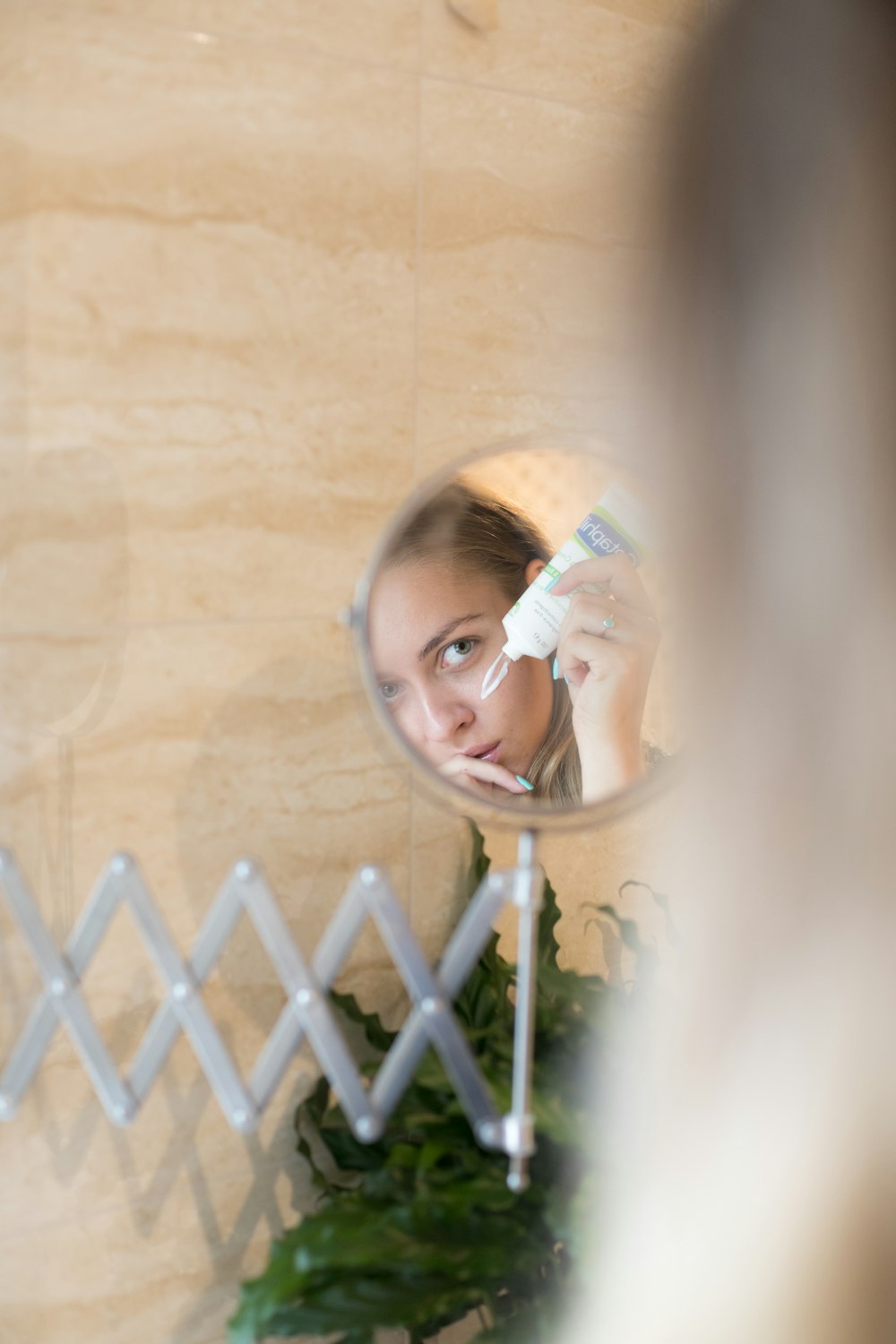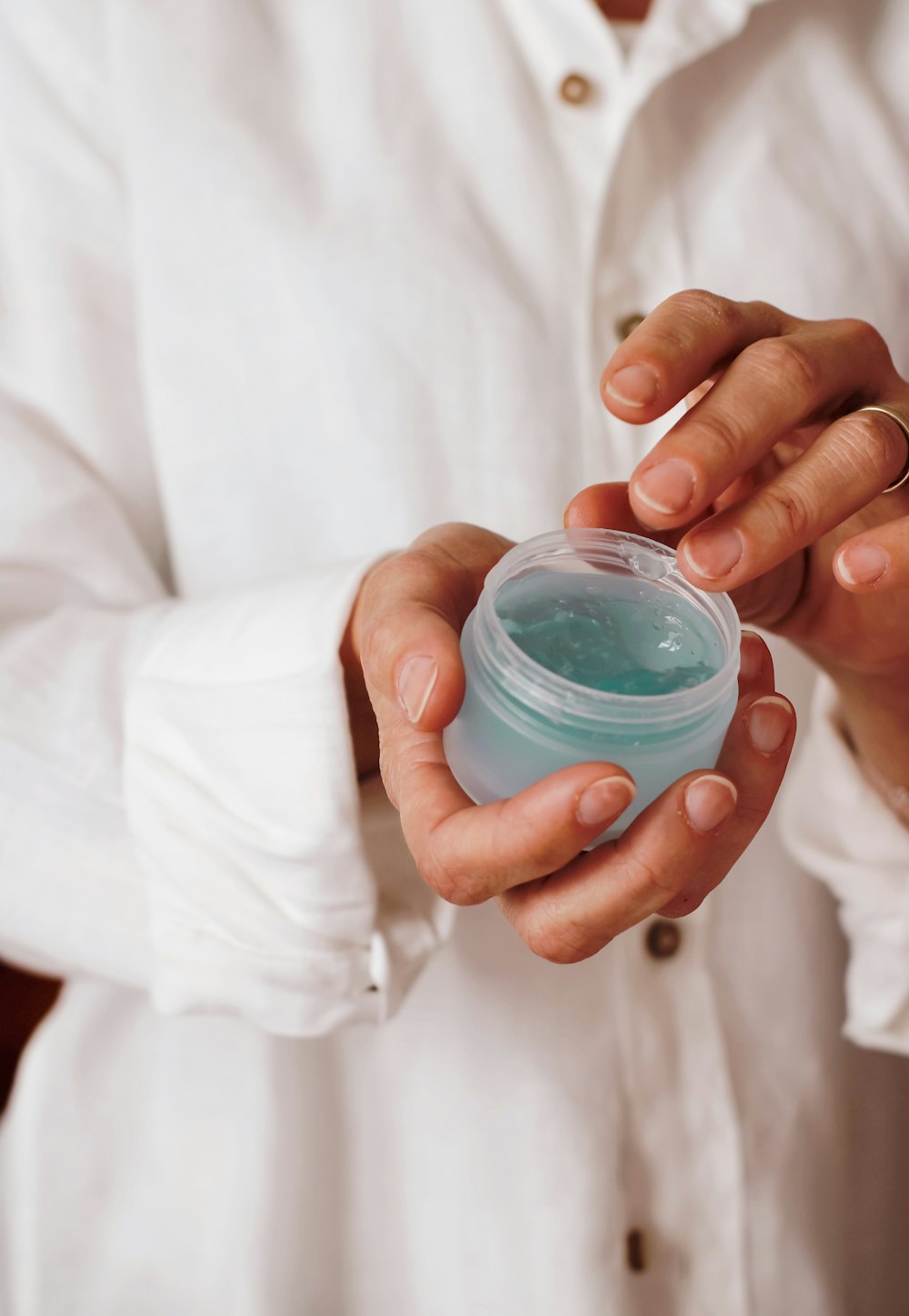How To Know If You Have Sensitive Skin

written by nail expert Jess Rowley
Signs you may have sensitive skin
Building your own skincare routine is pretty much impossible if you don’t know what skin type you are. If you think you have sensitive skin, you’ve probably had a bad reaction to a product, or your skin is very picky. It’s a challenge.
You could say that sensitive skin takes a bit more work for skincare. Unlike other skin types, you may not even know what triggers your skin, making it very difficult to select the products. But what is sensitive skin? Whether you have combination sensitive skin, or dry sensitive skin, knowing how to care for sensitive skin is the only way to get happy, healthy skin.
So, what next?
We’re going to find out together how to know if you have face sensitive skin, and what to do about it. Some people may get confused about the difference between getting an allergic reaction and truly having sensitive skin, especially when you don’t know how to exfoliate sensitive skin. I’ll be giving you all my tips on how to find out if you have sensitive skin so you can learn to look after it.
If you want to find a good skincare routine for sensitive skin, then check out the best skincare for sensitive skin. Finding the right skincare products that don’t irritate your skin can take a bit of trial and error, but it will make the difference between irritated, unmanageable skin and glowing healthy skin.
Let’s jump in!
How To Know If You Have Sensitive Skin
More and more people are affected by sensitive skin, and we’re seeing a wave of new products free from fragrance or common irritants that are labeled as suitable for “sensitive skin”. Although there is no official definition for sensitive skin, it’s safe to say reactions include stinging, burning, irritation or bumps after using a skincare product or something else. With sensitive skin, your skin gets easily irritated either from ingredients, stress or the environment.
Indications your skin may be sensitive to something
Common signs of people that have sensitive skin can be similar to an allergic reaction. When you use a product that your skin doesn’t like, you’re likely to see these signs:
-Red skin or flushed skin
-Burning sensation
-Itchy skin
-Dry or flaky patches
-Rashes
-Irritation and teary eyes from the smell or perfume
-Swelling
-Sensitivity to the sun
Of course, these are general signs that your skin is allergic to something. How can you tell when your skin is sensitive as opposed to when it is simply allergic to something?
Here are 10 signs you have sensitive skin
10 signs you may have sensitive skin
Not everyone has sensitive skin, some people simply have an allergy to one ingredient. However, if you can relate to these ten signs, then it’s very likely your skin is sensitive. You can also choose to take a how to know if you have sensitive skin quiz.
Your skin is itchy
Having itchy skin that feels tight is a symptom of sensitive skin. It can often get worse when you wash with hot water too often. Try washing your face with a gentle or mild cleanser, and using lukewarm water. For more relief, follow up with a moisturizer containing ceramides.
Many beauty products burn or sting
You’ve tried it all. Cleanser, moisturizer, sunscreen and cosmetics like foundation, but your skin reacts to them all. When you have sensitive skin, your skin barrier is thinner, and harsher ingredients in products can irritate your skin. Don’t use too many products in your skincare routine, and try to purchase only hypoallergenic products that were designed for sensitive skin.
Your skin gets flushed easily
Red skin is often a sign of sensitive skin, sometimes from genetic conditions such as rosacea, or simply reacting to products or ingredients. Rather than get this now and then, people with sensitive skin will frequently get red or flushed easily. If you only occasionally experience redness or sensitivity to harsh ingredients, you may have an allergic reaction to that one ingredient.
You get dry patches
Dry skin or irritation can be a sign of eczema which is a kind of dermatitis due to a leaky skin barrier that cant trap moisture. When your skin gets scaly or flaky, the longer that dryness continues. You can get over the counter creams to help
Your skin hates fragrance
Even though we can all appreciate a good scented product, they’re extremely likely to trigger sensitive skin. Go for fragrance free beauty products. That includes “natural scents” too. Some of the worst scents for sensitive skin include essential oils such as peppermint, cinammon, and clove.
You easily get breakouts
Sensitive dry skin can get into an unhealthy cycle of producing too much sebum or oils to make up for the lack of moisture. That means clogged pores that frequently lead to breakouts. Don’t overwash, use a gentle cleanser twice a day, and then use a non-irritating spot treatment. You could use tea tree oil and hazel, rather than alcohol, benzoyl peroxide, or salicylic acid.
You often get rashes or bumps
Getting rashes often or tiny red bumps can be a sign of sensitivity. If you’re unsure if your skin will like a new product, try doing a patch test in a small area of your skin. If after 24 hours you haven’t had developed a rash, you’re probably good to apply it to your face or body.
You are more sensitive to UV rays
Youre definitely not one of those people that can walk out on a sunny day without a hat or sunscreen. You get bright red and flushed. This is known as photosensitivity and can cause a rash on your face, outer arms and even chest. Use a broad-spectrum sunscreen with SPF 30 or more. If possible, go for mineral sunscreens containing titanium dioxide and zinc oxide rather than chemical sunscreen with synthetic varieties.
Your skin gets worse in bad weather
Bad weather and windy days are a no go for you, especially if you struggle with rosacea. You can often get flushed, agitated and swollen blood vessels. If your skin gets inflamed, it will need calming, so try to go for products that have soothing ingredients like calendula, chamomile, and azulene extract.
You have broken capillaries
Capillaries are tiny blood vessels, sometimes they become visible near the surface of the skin and can be seen more on the nose and cheeks. Since sensitive skin is thinner and has fewer protective layers, they are more likely to have broken capillairies.
How to diagnose sensitive skin
It’s not always easy to get a diagnosis for sensitive skin. How do doctors test for sensitive skin? Here are a couple of FAQs for sensitive skin.
Are there medical tests for sensitive skin?
Doctors can conduct patch testing to help find out which allergies are causing your symptoms. Aside form that there’s not much else doctors can do to test if someone has sensitive skin, as there are too many factors that can cause it.
When and how do doctors diagnose and treat sensitive skin?
A lot of people with sensitive skin don’t go to the doctors for help with irritation from skin care products. Rather, they try out different products until they find what works for them, or only see a dermatologist if their skin condition gets worse.
A dermatologist can check for skin conditions like eczema, rosacea or contact with a skin irritant. They may conduct skin patch tests to see for allergies. Dermatologists can ask about your skin care routine, and find any potential irritants as well as recommend gentle skin care products or household products that are safe for sensitive skin.
Are skin care products labeled “hypoallergenic” safer for sensitive skin?
Don’t be fooled into believing all skin car products labeled hypoallergenic are safe. Since there are no official regulations for using the term “hypoallergenic”, it can mean anything a company wants it to mean. A good idea is to check the labels of all products to identify potential irritants for yourself.
What diseases and conditions are associated with sensitive skin?
There are different skin disorders that can cause skin sensitivity. These include acne, psoriasis, contact dermatitis, rosacea, or eczema. If you have one of these conditions, you are prone to getting sensitive skin symptoms and allergic skin reactions. See a doctor who can provide medical advice on what to do in this case.
Final Thoughts
how to know if you have sensitive face skin? So many things can irritate sensitive skin. Skin dryness is often linked to skin irritation, and this can end up causing skin sensitivity. There are some things you can do, such as using a soap free cleanser, wrapping up warm in dry winter air, using a mild laundry detergent, soap free cleansers and fragrance free products to prevent allergic reactions.
People with allergic contact dermatitis or irritant contact dermatitis can struggle a lot with skin sensitivity. That’s why it’s important to see a board certified dermatologist who can recommend a topical steroid to soothe a red rash or identify which environmental factors or genetic condition such as the immune system or atopic dermatitis is causing this allergic response. You can also get an oral antihistamine to help against common allergens for a short period of time.
Certain medications only a healthcare provider can give you, but other symptoms like small bumps, redness, or red bumps can be a common sign of skin sensitivity that you can get treatment for. Most people will be able to find certain products that work for them as a treatment, but a doctor will also recommend you to apply moisturizer and a prescription cream as treatment for more serious conditions.

Best L’Oreal Products For Men
[Review] in 2022 written by nail expert Jess RowleyCheck out the results fast - here are our review winners[dica_divi_carousel item_width_tablet="400px" item_width_phone="345px"...

Best Neutrogena Skincare Products
[Review] in 2022 written by nail expert Jess RowleyCheck out the results fast - here are our review winners[dica_divi_carousel item_width_tablet="400px" item_width_phone="345px"...

Best Nivea Products For Men
[Review] in 2022 written by nail expert Jess RowleyCheck out the results fast - here are our review winners[dica_divi_carousel item_width_tablet="400px" item_width_phone="345px"...

Best Rodan+ Fields Products
[Review] in 2022 written by nail expert Jess RowleyCheck out the results fast - here are our review winners[dica_divi_carousel item_width_tablet="400px" item_width_phone="345px"...






